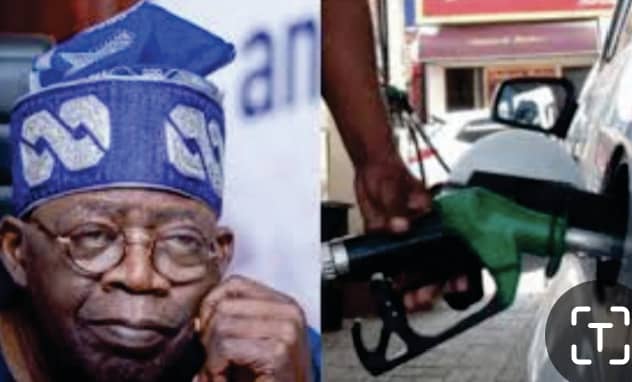By
Dr. Desmond O. Echeta
Preamble
At a filling station in Owerri, a mother of four stands with two jerry cans. She has calculated, down to the last naira, how much fuel she needs for her small provision shop to keep its freezer running. With the attendant’s announcement of an additional 5% surcharge, her budget no longer balances. “Does this government want me to stop selling cold drinks too?” she laments, her frustration echoing that of millions of ordinary Nigerians.
This moment is symbolic. It represents the reality of a nation still tethered to fossil fuels for survival. For over six decades, oil has shaped our economy, our politics, and our household budgets. Yet, the very resource that has enriched elites has left the masses vulnerable to global price shocks, subsidy mismanagement, and now, climate pressures.
The 5% surcharge is more than a technical tax—it is a mirror reflecting our struggle to reconcile energy dependence with the urgency of a green transition.
The Policy and Its Origins
Nigeria’s new tax law, effective January 2026, introduces a 5% surcharge on fossil fuel sales. The design exempts kerosene, cooking gas, compressed natural gas, and renewables—an intentional carve-out to encourage cleaner energy adoption.
Globally, such measures are recognized as carbon pricing mechanisms. They are designed not just to raise government revenue but also to send a market signal: fossil fuels are costly, not only financially but environmentally. Sweden, for instance, embedded its carbon tax in broader fiscal reforms in the 1990s, which helped it cut emissions while sustaining growth.
In Nigeria, the surcharge builds upon the removal of petrol subsidies in 2023—a bold, if unpopular, move that freed public finances but also pushed citizens toward alternative energy. Within two years, Nigeria climbed to 4th place in Africa in solar adoption, with over 385.7 MWp of capacity installed. The surcharge now becomes the next test: will it accelerate this momentum, or deepen public resentment?
Causes, Consequences, and Power Dynamics
The surcharge has potential to achieve three goals simultaneously:
1. Revenue Mobilization — providing funds for climate-related programs and deficit financing.
2. Behavioral Change — discouraging over-reliance on petrol and diesel by making them more expensive.
3. Climate Commitments — aligning Nigeria with its Paris Agreement pledges and the 2021 Climate Change Act.
But these gains are fragile. The flat 5% rate ignores Nigeria’s severe inequality. Poor households and SMEs—who run petrol-powered generators because of erratic electricity—face disproportionate hardship. By contrast, wealthy elites may absorb the surcharge with little change in behavior. This creates a policy paradox: those least able to bear the burden are most affected, while those most responsible for high carbon consumption may continue business as usual.
The second weakness is fiscal opacity. Unlike British Columbia’s revenue-neutral carbon tax, where proceeds were transparently recycled into tax rebates and green programs, Nigeria’s law is silent on utilization. Without accountability, the surcharge risks becoming another regressive levy rather than a progressive climate tool.
Finally, political economy tensions loom. Powerful fuel marketers and vested interests may resist strict enforcement, while citizens could mobilize against perceived unfairness.
These dynamics must be managed carefully to avoid a repeat of the backlash that derailed earlier fuel reforms.
Real-Life Perspectives and Citizen Reactions
On Lagos roads, a commercial bus driver fumes: “Every time they add tax, it’s us the poor who suffer. Will politicians stop driving their convoys?”
In Abuja, a climate activist offers a different view: “Yes, it’s painful. But our children are already paying a higher price with floods and heat waves. We must start somewhere.”
At an SME cluster in Aba, a tailor sighs: “If government wants to help, let them use this money to give us solar panels, not just collect from us.”
The data strengthens these voices:
– 40% of Nigerians live below the poverty line (World Bank, 2024).
– Nigeria still generates over 70% of its electricity from fossil fuels, with most households relying on petrol generators.
– Yet, renewable energy adoption is accelerating: over 63.5 MWp of solar capacity was added in 2024 alone.
This tension—between hardship and hope—frames the public response. Citizens do not reject climate action outright; they simply demand fairness, clarity, and inclusion.
Charting the Road Ahead
The 5% surcharge is a double-edged sword. Done well, it could push Nigeria toward a green, resilient future. Done poorly, it risks fueling distrust and deepening inequality.
To succeed, the government must:
1. Earmark Revenues Transparently — dedicate proceeds to climate programs, renewable subsidies, and SME energy support.
2. Adopt Progressive Surcharges — adjust tax rates based on consumption thresholds so that elites bear more responsibility than struggling households.
3. Invest in Green Infrastructure — channel funds into solar mini-grids, electric vehicle charging stations, and battery storage research.
4. Build Trust Through Accountability — publish annual reports on how surcharge revenues are spent.
The surcharge should not be seen as a punishment but as a stepping stone to opportunity.
If Nigeria treats it as a catalyst for green jobs, clean energy access, and climate resilience, the short-term pain will be justified by long-term gain.
Newton’s First Law tells us that a body at rest stays at rest unless acted upon by an external force. For decades, Nigeria has remained motionless in its fossil fuel dependence. This 5% surcharge could be that external force—if we are bold enough to channel it wisely. The road to green growth will be uneasy, but it is a road we must walk.





